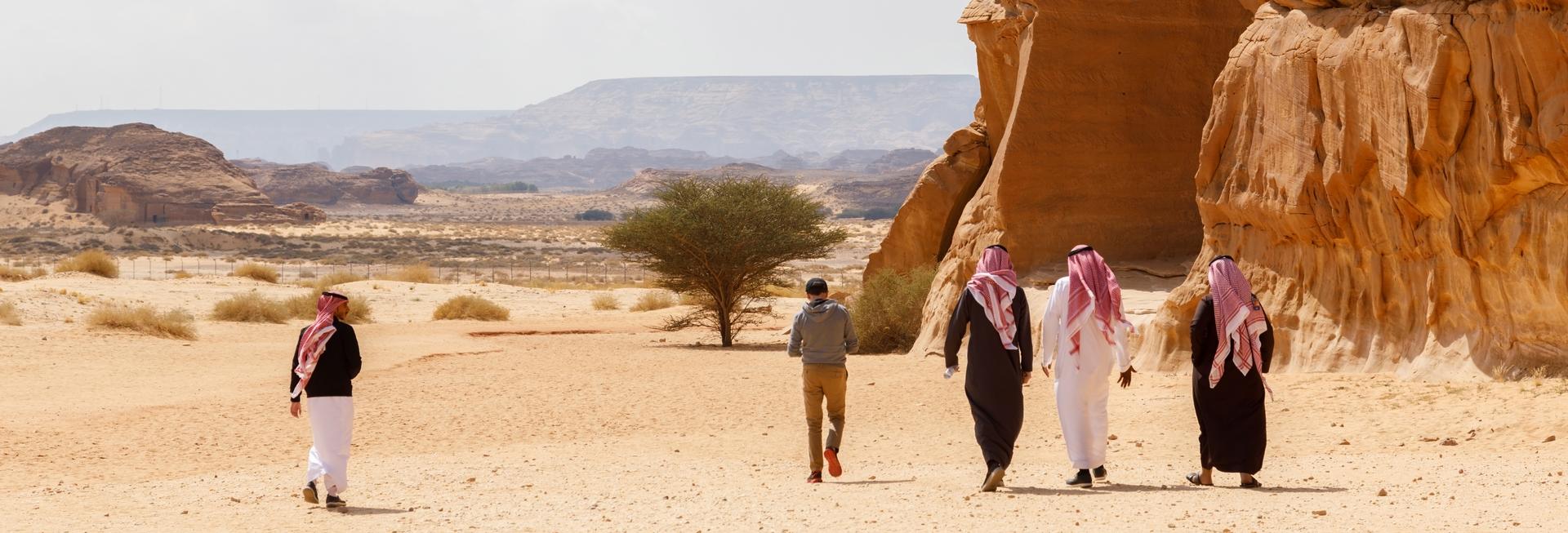What is…
Arabia in the Bible
Hebrew: עֲרָב —transliteration: `Arab
Greek: Ἀραβία —transliteration: Arabia
Ancient Arabia was an extensive region in southwest Asia. Like the Hebrews, its people are Semitic, that is, descended from Noah’s son Shem.
Arabia is mentioned in 7 verses of Scripture.
- “the kings of Arabia” —2 Chronicles 9:14; Jeremiah 25:24
- “The oracle about Arabia. In the thickets of Arabia…” —Isaiah 21:13
- “Arabia and all the princes of Kedar, they were customers at your hand for lambs, rams, and goats…” —Ezekiel 27:21
- “Ethiopia, Put, Lud, all Arabia, Libya, and the people of the land that is in covenant will fall with them by the sword.” —Ezekiel 30:5
- “…I went away to Arabia…” —Galatians 1:17
- “Mount Sinai in Arabia —Galatians 4:25”
Ancient Arabia was border on the west by the Isthmus of Suez and the Red Sea, on the south by the Indian Ocean, and on the east by the Persian Gulf and the Euphrates River. It extended into the north in barren deserts, meeting those of Syria and Mesopotamia.
The whole land appears to have been inhabited by a variety of tribes of different lineage, Ishmaelites, Arabians, Idumeans, Horites, and Edomites (Genesis 10). They eventually became amalgamated and came to be known by the general designation of “Arabs”.
The modern Arabs are predominantly Ishmaelite. Their language is the most developed and the richest of all the Semitic languages, and is of great value to the student of Hebrew.
In ancient times, Arabia was divided into three parts:
Arabia Felix (Happy Arabia)—so called from its fertility, between the Red Sea and the Persian Gulf
-
Arabia Deserta—the el-Badieh or “Great Wilderness” of the Arabs
From this name is derived the name by which the nomadic tribes who wandered this region are still known, the “Bedaween,” or, more generally, “Bedouin.”
-
Arabia Petraea, i.e., the Rocky Arabia—so called due to its rocky mountains and stony plains
It consisted of all the northwest portion of the country.
Bible facts about Arabia
The Israelites wandered for 40 years in Arabia.
In the days of Solomon and the years after, there was much commercial intercourse with Arabia (1 Kings 10:15; 2 Chronicles 9:14; 17:11).
Arabians were present in Jerusalem at Pentecost (Acts 2:11).
Paul retired for a while into Arabia after his conversion (Galatians 1:17).
This country is frequently referred to by the prophets (Isaiah 21:11; 42:11; Jeremiah 25:24, etc.)
More information
- Arab—the city
- Arabah—a Biblical place
- Who is Shem?
- Who is Ishmael, and what is his significance?
- Ishmeelites
- About wilderness in the Bible
- desert
- Red Sea
- Dedan
- Sheba
- myrrh
- Aretas
- Canaan
- Cush
- Dedanim
- East
- Idumeans
- Islam—An Overview for Christians
- Witnessing to Muslims
- Recommended resources on Islam
- How does the Qur’an compare to the Book of Genesis on the great events of history (Creation, Fall, Flood and confusion of languages)? Answer
- Amalekites
- Edomites
- Horites
- Midian
- Midianites
- Palestine
- Persia (Iran)
- Damascus
- wilderness
- IRAQ—What is the significance of Iraq in the Bible? Answer
- TERRORIST REVENGE—Love replaces hatred—former Israeli soldier and an ex-PLO fighter prove peace is possible-but only with Jesus
